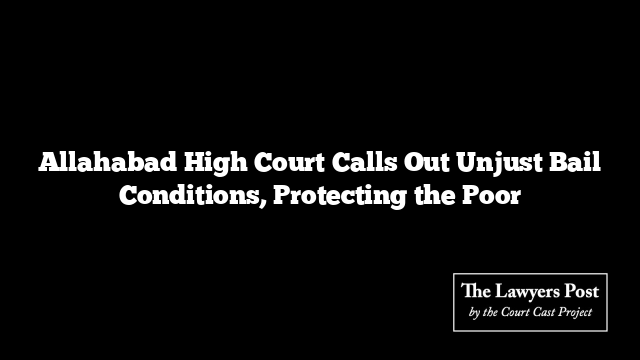The Allahabad High Court recently urged trial courts to avoid imposing arbitrary bail conditions that effectively block poor defendants from securing their release, especially when the conditions are set without considering their socio-economic background.
Justice Ajay Bhanot emphasized that many individuals from marginalized communities are unable to meet these bail demands, which effectively defeats their right to bail. He stressed that trial courts must ensure that bail sureties are tailored to the accused’s financial status rather than being imposed mechanically.
The ruling comes in response to a man who had been in jail since 2020. Despite being granted bail in several cases, he remained incarcerated due to his inability to provide the required sureties. The High Court granted him bail after noting his cooperation with the investigation and his lack of flight risk, but the case highlighted how excessive bail conditions can undermine justice for those who cannot afford them.
The Court further referenced an earlier ruling in the Arvind Singh case, which had established guidelines to prevent the arbitrary imposition of sureties. The court ordered the Agra District Legal Services Authority (DLSA) to provide legal aid to those who struggle with meeting bail conditions, ensuring that indigent prisoners can benefit from their granted bail.
Additionally, the Court called on the District Judge of Agra to review the issue and report back on compliance with legal aid directives. The Judicial Training and Research Institute in Lucknow was also tasked with continuing efforts to educate trial court judges on the matter.
In a broader context, the Allahabad High Court’s stance seeks to prevent financially disadvantaged individuals from being trapped in jail due to unreasonable bail demands, reinforcing the principle that justice should be accessible to all, regardless of economic status.





